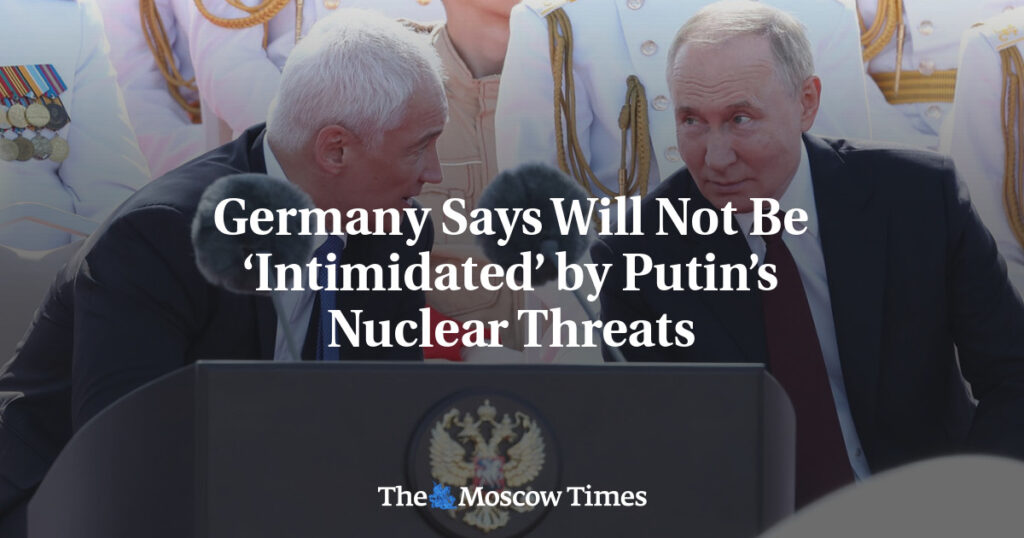Germany Stands Firm Against Putin’s Nuclear Threats Amid U.S. Missile Deployment Plan
Germany remains undeterred by recent threats from Russian President Vladimir Putin to restart the production of intermediate-range nuclear weapons. The provocative statement followed the announcement of scheduled U.S. missile deployments in Germany starting in 2026. This escalation highlights ongoing geopolitical tensions and raises concerns over a renewed arms race in Europe.
Sebastian Fischer, a spokesman for the German Foreign Ministry, made Germany’s stance clear during a government press conference, stating, "We will not be intimidated by such statements." This declaration underscores Germany’s commitment to maintaining its strategic alignment with the United States, despite the aggressive rhetoric from Russia.
The background to this issue is rooted in a recent joint announcement by Washington and Berlin. The two countries confirmed that "episodic deployments" of U.S. long-range missiles, which include the Tomahawk cruise missiles, would commence in Germany in 2026. This move is seen as part of broader efforts to strengthen NATO’s defense capabilities in the face of an increasingly assertive Russia.
In response, Putin delivered a stern warning during a naval parade in St. Petersburg. He stated that Russia would feel free to abandon its unilateral moratorium on the deployment of medium- and short-range strike capabilities. "We will consider ourselves liberated from the unilateral moratorium previously adopted on the deployment of medium- and short-range strike capabilities," Putin proclaimed. He further hinted that the development of these missile systems was nearing completion, signaling Russia’s readiness to respond to U.S. actions.
The history of these missile systems is significant. The Intermediate-Range Nuclear Forces (INF) Treaty, signed in 1987 between the United States and the Soviet Union, specifically targeted missiles with ranges between 500 and 5,500 kilometers (300-3,400 miles). It was a cornerstone of nuclear disarmament during the Cold War, eliminating an entire class of nuclear weapons.
However, the treaty unraveled in 2019 when both Washington and Moscow withdrew, each accusing the other of violations. This breakdown removed a critical check on arms proliferation, leading to the current fraught situation.
Fischer emphasized that Russia had already developed and deployed such missiles long before the recent announcement by the U.S. and Germany. "This type of missile… had already been developed and deployed long ago by Russia," he said. Fischer further noted that the planned U.S. deployments in Germany serve as a deterrence strategy to prevent the use of these weapons against Germany or other potential targets in Europe.
This development is a stark reminder of the enduring complexities and dangers of nuclear brinkmanship. As nations revisit Cold War-era tactics, the international community watches closely, aware that diplomatic efforts and defense strategies must carefully balance deterrence with the potential for escalation.
For more information on Germany’s foreign policy, visit the official website of the German Federal Foreign Office.
